NEWS ACCOUNT Spotlight on the COCPA 2023-24 Leadership Nominees PAGE 4 AICPA Leadership Academy Inspires Emerging Leaders to Make a Difference PAGE 20 COLORADO SOCIETY OF CPAs • MARCH / APRIL 2023 CO CPA COLORA DO SOCIETY OF CPAS Colorado Small Businesses Cope with Regulatory Overload Feeling the Squeeze:

2 NewsAccount | March/April 2023 Trimble & Associates Recruiting Employers and job seekers residing in or relocating to Colorado also can find more information about Trimble & Associates, Inc. at our website: www.trimbleassociates.com Call or email us today to see if we can be of assistance! Executive recruiters specializing in the placement of accounting, tax, and corporate finance professionals Contingency search firm focused in the Denver and Boulder Metro areas and the broader colorado and intermountain region family owned and operated for over 20 years 8400 E Crescent Parkway Suite 600 Greenwood Village, CO 80111 info@trimbleassociates.com 303-779-5800
17 Feeling the Squeeze: Colorado Small Businesses Cope with Regulatory Overload
The past year has dealt one regulatory blow after another to Colorado’s small businesses. Can they afford to keep their doors open, or will they be legislated out of existence?

20 AICPA Leadership Academy Inspires Emerging Leaders to Make a Difference

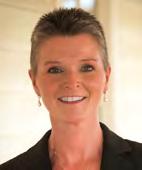


When 35 young professionals from across the country gathered for the 2022 AICPA Leadership Academy, two COCPA members were among them. Both returned with broader perspectives, expanded leadership skills, and life-changing workplace strategies.

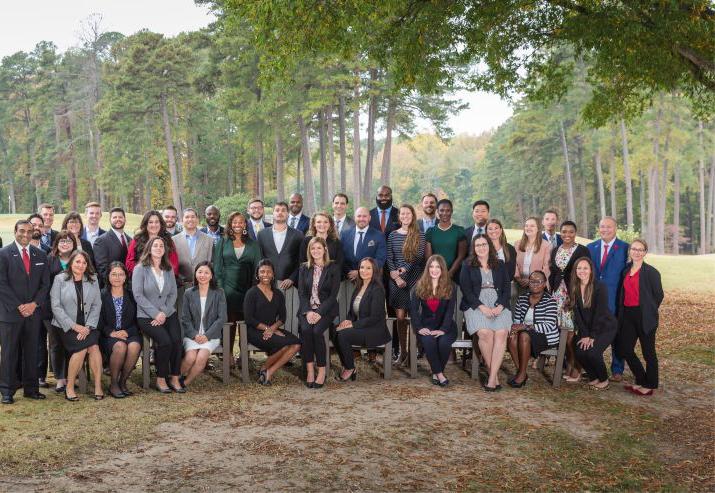
March/April 2023 | www.cocpa.org 1 20 4 8 CONNECT WITH COCPA Follow us on social media and hear about recent news and upcoming events! Departments 2 29 Chair Column Movers & Shakers, Classifieds Features Contents 4 At the Board Table: Spotlight on the COCPA 2023-24 Leadership Nominees The much-discussed pipeline into the profession is top of mind for the members who will join the COCPA Board of Directors and Educational Foundation Board of Trustees on May 1. 8 COO/CLO
Campbell Announces Resignation Members and staff reflect on the mark that COO/CLO Rebecca Campbell left on the COCPA as she announces her resignation after 34 years of service.
Rebecca
17
NEWSACCOUNT
A publication of the Colorado Society of Certified Public Accountants Vol. 68, No. 4 March / April 2023
Officers
Angela Roberts, Chair Diego J. Baca, Vice Chair Amy E. King, Treasurer Randy L. Watkins, Immediate Past Chair Alicia Gelinas, Secretary
Directors
Jim Gilbert, Ronald L. Goodrich, David Loucks, Amy King, Heidi M. O’Neil, Alexandria A. Romero, Tiffany Davis
Editorial Board
Jack Allgood, Paul Elggren, Jerald Kaiser, Ken Fichter, Lori Anne Reinwald, Laura J. Theiss, Barbara J. Tedesko, Steve Van Meter, Michael D. West, Charlie Wright
Kelli Davis, Editor Natalie G. Rooney, Contributing Writer Sarah Knight, Blue Ocean Ideas, Design
NewsAccount (ISSN #10899952) is published bimonthly by the Colorado Society of Certified Public Accountants, 7887 E. Belleview Ave., Suite 200, Englewood, CO 80111. NewsAccount is published in January, March, May, July, September, and November and reports information, news, and trends in the accounting profession. The Colorado Society of CPAs assumes no liability for readers’ business decisions in reference to advertisements or other information included in this publication.
Membership dues include a $14.00 one-year subscription to NewsAccount
Periodical postage paid in Englewood, CO, and additional mailing offices.
POSTMASTER: Send address changes to NewsAccount, Colorado Society of Certified Public Accountants
7887 E. Belleview Ave., Suite 200 Englewood, CO 80111
Net press run = 5,447 copies; sales through dealers and carriers, street vendors, and counter sales = 0; paid or requested mail subscription = 5,407; free distribution by mail = 0; free distribution outside the mail = 20; total free distribution = 20; total distribution = 5,427; office use, leftovers, spoiled = 19; returns from news agents = 0; total sum = 5,447; percent paid and/or requested circulation = 99%.
303-773-2877
• 800-523-9082
Fax: 303-773-6344
CHAIR COLUMN
Navigating the Space Between
BY ANGELA ROBERTS, CPA, CHAIR

Do
The average person has 12 jobs in his or her lifetime, with an average tenure of three years, according to the Bureau of Labor Statistics. Shorter job cycles, longer careers as a result of longer lifespans, and rapidly changing technology mean that the traditional idea of “success” – climbing the ladder at a single organization over the course of many years – is no longer realistic. People want to learn, relearn, change, and develop.
HELPING YOUNG PROFESSIONALS
Over the past 30 years of my career, and during the 2022 Chair Tour, I’ve had the opportunity to meet thousands of professionals who love their work. Overall, CPAs are very proud of and grateful for their careers, opportunities, and the work they produce. They truly love what they do.
Ultimately, there is that pivotal moment where we become a “trusted advisor” to our clients. It’s truly a turning point when we can help people and businesses become better. But between your decision to launch your accounting career and that awesome moment where you earn “trusted advisor” status, there is a space where young professionals must decide on their future in the profession. This space is challenging, but it’s a necessary part of the journey. It is a place where people are learning, growing, building, and becoming – both professionally and personally.
Linkedin’s Workplace Learning Report says that employees who are provided with opportunities to learn and grow are 3.6 times more likely to report being
2 NewsAccount | March/April 2023
NewsAccount is available online at www.cocpa.org
you remember being asked as a child, “What are you going to be when you grow up?” The question still applies: CPAs, what are we going to be when we grow up? What do we want to become as we build a career in this profession?
happy at their organization, and 2.9 times more likely to report that they expect to remain with their organization over the next two years. In fact, employees view opportunities to learn and grow as the No. 1 driver of a great work culture, a jump from 2019 when it ranked ninth.
This phase of growth for our profession is usually difficult. During this time we’re developing our knowledge and skills to become that trusted advisor. This space includes rapid-fire learning, and it’s a challenge. When I speak to those who are in this space today, they want to continue to learn because they really like what they’re doing. They’re just doing way too much of it, and with technology and added regulations, this space can feel overwhelming.
BRIDGING THE SPACE BETWEEN
The good news is that we are smart people who know how to find better ways to do things. We need to take care of those around us who are in “the space” and help them get through it and into the bright future. We must adjust our thinking to support the continued growth of our profession and our professionals. We can redesign the way we work and the stories that we tell about the work. We can provide communication, direction, flexibility, and clarity on the what, when, who, and why
To help young professionals in the space, consider:
• Reevaluating priorities
• Reallocating time
• Offering proactive paid time off before busy season

• Scheduling no-meeting days
• Providing scheduled wellness time

Our society, the profession, corporate cultures, and the world in general are all working through this post-COVID world, and everyone is adjusting and adapting. It’s important that we move forward together, with support and understanding, to help those who are struggling with what their future looks like as they navigate “the space.” For the future of the profession, I’m hopeful that they choose to join us on the journey.
It has been an honor to serve as your COCPA chair this past year. I sincerely appreciate the trust that my peers have placed in me during a time of unprecedented change and at such a critical juncture. The COCPA membership is full of amazing, talented people, and I am blessed to be involved at this level. Thank you dearly!
At the Board Table: Spotlight on the COCPA 2023-24 Leadership Nominees
We asked the recently nominated Board officers, directors, and Educational Foundation trustees to share their insights on top issues facing the profession and the COCPA, what they bring to the organization as leaders, and something about themselves personally. Here’s a look at what they do and what they want you to know.
Toby Clary has been a tax practitioner for more than 20 years, following his graduation with an accounting degree from Colorado State University. The vast majority of his clients work in the healthcare and real estate industries, ranging in size from a single-physician practice or a single-family rental property owner to a 50-plus physician group or a large land developer, with everything in between. He is passionate about the profession and its role in the community, and is deeply committed not only to helping his clients succeed, but also to giving back to the profession that has given so much to him. He notes that, like many CPAs, accounting was not his first career choice. While he initially planned on earning a management degree then heading to culinary school, his first accounting course changed his life and put him on the CPA path. “Choosing this career was one of the best decisions of my life and I am so grateful that life has taken me down this path,” he says.
Clary has served in a wide variety of COCPA roles, including on the Board of Directors, as an Educational Foundation trustee, Audit Committee member, and, in 2022, CEO
Search Committee member. He is a 2015 LeadFit graduate and was honored in 2013 as a COCPA Everyday Hero. He is president of the Northern Chapter and previously taught the Society’s popular CPE course, Tax Year in Review and Year-End Planning.
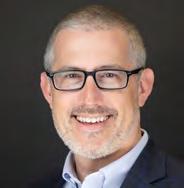
Clary’s volunteerism extends to his community. Among the organizations that have benefitted from Toby’s service and expertise are Partners Mentoring Youth, Northern Colorado United for Youth, North Forty, the
CPAs’ ability to provide clients with the highest level of service, is the top issue that the COCPA must address. “Our profession must find a better way to highlight the value of being a CPA to prospective accounting students,” he says.
Clary brings a pair of super powers to the board table: 1) A firm understanding of the COCPA’s inner workings, gained through his extensive volunteerism within the organization, and 2) a strong understanding – thanks to his statewide travels teaching the year-end tax course – of the challenges facing tax practitioners across Colorado. “From the sole practitioner to the firm with 100 practitioners or more, there are a lot of commonalities in what we do on a daily basis,” he says.
CSU Accounting Advisory Board, the Intuit Professional Tax Advisory Committee, and the National Society of Certified Healthcare Business Consultants.
As a member of the CSU Accounting Advisory Board, Clary sees firsthand the impact of the shortage of students who are choosing accounting as a profession. He says that the shortage, which negatively impacts
Outside of work, you’ll find Toby spending time outdoors with his partner Jill, son Miles, daughter Magnolia, and dog Zoë. Whether skiing, paddle boarding, biking, hiking, fishing, or camping, the Clary family can’t get enough of the Colorado outdoors. “If I’m not with my immediate family, I’m with my second family – my bike collection!” Clary laughs.
4 NewsAccount | March/April 2023
LEADERSHIP
COCPA BOARD VICE-CHAIR/ CHAIR-ELECT NOMINEE
Tobias “Toby” D. Clary, CPA
Shareholder, Soukup, Bush & Associates, CPAs, P.C., Fort Collins
"Our profession must find a better way to highlight the value of being a CPA to prospective accounting students."
COCPA BOARD OF DIRECTORS NOMINEE
Erin N. Breit, CPA
 Audit Partner, BDO USA, LLP, Denver
Audit Partner, BDO USA, LLP, Denver
An audit partner with BDO, Erin Breit is part of the ERISA and Employee Benefit Plan Practice. She is the partner liaison for the Denver office’s diversity and inclusion groups, and serves on the AICPA Employee Benefit Plan Expert Panel and the AICPA Employee Benefit Plan Audit AARU Conference Planning Committee. With extensive experience with not-for-profit entities, she has served on several COCPA conference planning committees, including the Not-for-Profit Conference Planning Committee. She is a frequent speaker at various COCPA, AICPA, and Financial Executives International events.
Breit is actively involved in the community and has a passion for empowering women and children. She is the treasurer of the Florence Crittenton Services of Colorado Board of
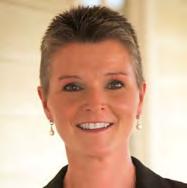
Directors, a family resource center for teen families, and previously served as treasurer of the Colorado Public Plan Coalition.
While she says she isn’t sure that she has a super power, Breit plans to bring her personal and professional experiences to the table. She is excited to join her COCPA Board colleagues in addressing the issues facing the profession. Among them, related to the talent pipeline challenges currently facing the accounting profession, Breit sees value in improving minority enrollment in college accounting programs and encouraging accounting students to go on to earn their CPA licenses.
Breit and her husband, Andrew, have a daughter, Lucy, with whom they like to travel, hike, swim, and play games. She also enjoys cross stitching and cooking.
COCPA BOARD OF DIRECTORS COMMUNITY MEMBER NOMINEE
Amy King
Executive Coach, MEDI Leadership, Highlands Ranch
Executive coach and human resources consultant Amy King has decades of experience helping leaders transform their culture, grow their impact, and drive engagement for lasting results. Previously, she served as senior vice president and chief people officer at Centura Health, where she advanced strategic priorities and the evolution of human resources.
King’s deep understanding of the factors that drive organizational culture, influence, and performance has allowed her to positively impact her community through her work on several nonprofit boards. She currently chairs both the Catholic Charities of Denver Board of Directors and the National Doula Certification Board of Directors. Among her previous board engagements are the Colorado Women’s Chamber of Commerce and the MDAB Career Advisory Board for the University of Denver’s Daniels College of Business.
Her work with the COCPA includes a previous term as the Board of Directors community
member, as well as stints on the Leadership Summit and CEO Search committees. She currently serves on the ESG Working Group. King holds a master’s degree in leadership and organizations, with a specialty in human capacity, from the University of Denver, and a bachelor’s degree in organizational management, with a human resources emphasis, from Colorado Christian University. She holds advanced certifications in dispute resolution, social and emotional intelligence, diversity and inclusion education, and executive and team coaching.
She considers her 25 years of experience, both in higher education and healthcare, to be the super power that she brings to the board table. She says that the talent pipeline into the profession is among the most significant issues that the Board and the COCPA must address. Whether watching her son play baseball, traveling, camping, or being physically active, this busy mom of two loves spending her nonwork time with her family.
Greg Pfahl, an audit partner with Moss Adams LLP’s Denver office, has practiced public accounting since 1997. He provides a wide range of audit and accounting services for public and privately held companies in the manufacturing and consumer products, technology and life sciences, and renewable energy industries. Pfahl assists clients with financial reporting and complex transactions such as initial and secondary public offerings, private offerings, and mergers and acquisitions.
Pfahl serves on the COCPA ESG Working Group and the Public Company Practice Forum. In 2016, he was honored as a COCPA Everyday Hero. He is a former member of the Alzheimer’s Association of Colorado Board of Directors and currently serves on the board of the Colorado Advanced Manufacturing Association. In addition to acknowledging the declining number of new accounting graduates as a significant issue facing the profession, Pfahl identifies the increasing demand for services – due in part to increasing and changing regulations – as an additional challenge.
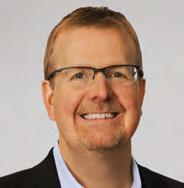
Pfahl’s super power: Strategic thinking with a penchant for planning ahead.
Born and raised in Kentucky, Pfahl has lived in Colorado since 2000. When not keeping up with his 9-year-old son Mason’s activities, Pfahl, his wife, and Mason enjoy hiking, skiing, snowshoeing, and four-wheeling in the mountains. Pfahl is a big fan of live music and looks forward to a trip this summer with his extended family to see Dead & Company at the Gorge amphitheater in Washington.
March/April 2023 | www.cocpa.org 5
CONTINUED ON PAGE 6
Pfahl’s super power: Strategic thinking with a penchant for planning ahead.
Greg C. Pfahl, CPA
Audit Partner, Moss Adams, Denver
COCPA BOARD OF DIRECTORS NOMINEE
LEADERSHIP
EDUCATIONAL FOUNDATION TRUSTEE NOMINEE
Laurie J. Corradino, CPA, Ph.D.
Assistant Professor of Accounting Colorado State University – Pueblo
Laurie Corradino is an assistant professor of accounting at Colorado State University – Pueblo, and previously held the same role at the University of Wyoming and Colorado Mesa University. She has taught a variety of accounting and finance courses throughout her tenure.
Corradino has won several awards throughout her career, including first prize in the long case category of the AICPA’s 2021 CPA Evolution Resource Competition (CERC) Awards, for her case, Fixed Assets – A Logical and Visual Analysis.
A member of the Accounting Educators Conference Planning Committee for the past
two years, Corradino has been attending the Society’s educator-focused events for more than a decade.
Her super power, especially when faced with important, deadline-driven work, is focus. “I seem to be proficient at tuning out unrelated noise and staying focused on the task at hand,” she says. Speaking of important work, she agrees that addressing the often-discussed talent pipeline issue that the profession faces is critical. “As a profession, it will be imperative to identify what adaptations are necessary to both attract and retain quality talent and remain competitive in the labor market given the changing world view of what constitutes a satisfying and desirable career,” she says.
EDUCATIONAL FOUNDATION TRUSTEE NOMINEE
Alexandria Romero, CPA, MPAcc
Director of Finance, City of Pueblo
Alexandria Romero is director of finance for the City of Pueblo, a position she has held since October 2022. She previously worked in both public accounting and the nonprofit sector, including as chief financial officer of the Pueblo City-County Library District.

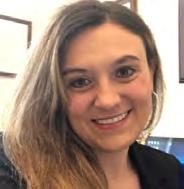
Deeply committed to the profession, Romero has served on the COCPA Board of Directors and as chair of the Young Professionals Council. She is especially passionate about engaging those who are new to the profession to offer mentorship, support, and networking opportunities, and has participated in the COCPA Educational Foundation’s Mentor Program. A 2019 graduate of the prestigious AICPA Leadership Academy, Romero chairs the AICPA Young Member Leadership Committee and serves on the AICPA Benevolent Fund Committee.
Also generous with her time and talents when it comes to her community, Romero has volunteered with local organizations such as Junior League of Pueblo, of which she is a past president; the Southern Colorado Runners Club; the Pueblo Downtown Association; and Young Life of Pueblo.
Romero has been recognized with several awards, including the 2019 COCPA Everyday Heroine Award, the 2021 Women to Watch Emerging Leader Award, and the 2022 AICPA Outstanding Young CPA Award. In both 2021 and 2022 she was named to the CPA Practice Advisor 40 Under 40 Accounting Professionals list.
She believes that the Educational Foundation can directly impact the shortage of accounting students and young professionals entering the profession, not only by awarding scholarships to curb students’ educational costs, but also by connecting young professionals with COCPA resources and support.
Romero knows firsthand the value of networking, and through her activities at both the state and national levels, she has built a significant network of accounting professionals. She considers this strong network – along with her passion for giving back and growing the COCPA membership – to be her super power.
When she isn’t building up the profession, Romero enjoys building Lego sets, as well as traveling with her husband and son and running.
CONTINUED FROM PAGE 5
She knows firsthand the important role that the COCPA Educational Foundation can play in the life of a student who is pursuing an accounting degree. She earned both her bachelor's and master’s degrees from CSU –Pueblo, along the way earning scholarships from the Educational Foundation. “Those scholarships helped put me on the path to achieving my academic and career goals, for which I’m extremely grateful,” she says. “I look forward to being part of the group that helps make this possible for others.”
After taking her educational pursuits to Texas Tech University, where she earned her Ph.D., Corradino is happy to be back – with her dog, Strudel – near family in her home state of Colorado. A LEGO fan, she is always looking for a new place in her home to display her latest creations, and enjoys working puzzles and playing board games. Travel is a hobby as well. “I really enjoy visiting new places and checking a new state or destination off the bucket list,” Corradino says.
Continuing to Serve …
Clary, Breit, Pfahl, and King join the following Board members, whose service continues, effective May 1: Chair Diego Baca, CPA, EY LLP, Denver; Treasurer Amy King, CPA, CGMA, Rubin Brown, Denver; Immediate Past Chair Angela Roberts, CPA, Aclivity, Denver; Secretary Alicia Gelinas, CPA, COCPA, Englewood; and Directors at Large Ronald L. Goodrich, CPA, CGMA, McPherson, Goodrich, Paolucci, & Mihelich, P.C., Pueblo; David C. Loucks, CPA, Opportune LLP, Denver; and Heidi M. O’Neil, CPA, CGMA, Denver International Airport.
Corradino and Romero join the following members of the Educational Foundation Board of Trustees, whose service continues, effective May 1: Alexandra “Alexie” Tune, CPA, MAcc, Deloitte, LLP, Denver; Tiffany K. Knight, CPA, Kundinger, Corder & Montoya, P.C., Denver; Judy A. Thomas, CPA, MBA, Regis University, Denver; Jeffrey Damm, CPA, SM Energy Company, Denver; Stephanie E. Daniels, CPA, MAcc, RubinBrown, LLP, Denver; Matthew Ogaz, CPA, MAcc, CoBank, ACB, Englewood; Caitlyn R. O’Neil, CPA, MT, CBIZ MHM, Denver.
6 NewsAccount | March/April 2023
WE WALK THE TALK.
WE WALK THE TALK.
CAMICO knows CPAs, because we are CPAs.
CAMICO knows CPAs, because we are CPAs.

Created by CPAs, for CPAs, CAMICO’s guiding principle since 1986 has been to protect our policyholders through thick and thin. We are the program of choice for more than 8,700 accounting firms nationwide. Why?
Created by CPAs, for CPAs, CAMICO’s guiding principle since 1986 has been to protect our policyholders through thick and thin. We are the program of choice for more than 8,700 accounting firms nationwide. Why?

CAMICO’s Professional Liability Insurance policy addresses the scope of services that CPAs provide.
CAMICO’s Professional Liability Insurance policy addresses the scope of services that CPAs provide.
Includes unlimited, no-cost access to specialists and risk management resources to help address the concerns and issues you face as a CPA.
Includes unlimited, no-cost access to specialists and risk management resources to help address the concerns and issues you face as a CPA.
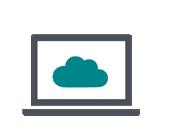
Provides potential claim counseling and expert claim assistance from internal specialists who will help you navigate the situation with tact, knowledge and expertise.
Provides potential claim counseling and expert claim assistance from internal specialists who will help you navigate the situation with tact, knowledge and expertise.
Does your insurance program go the extra mile? Visit www.camico.com to learn more.
Does your insurance program go the extra mile? Visit www.camico.com to learn more.
CPA PROFESSIONAL LIABILITY INSURANCE AND RISK MANAGEMENT SOLUTIONS
CPA PROFESSIONAL LIABILITY INSURANCE AND RISK MANAGEMENT SOLUTIONS

Alpa (Keily) Evans, Account Executive
T: 800.652.1772 Ext. 6720
E: aevans@camico.com
W: www.camico.com
Accountants Professional Liability Insurance may be underwritten by CAMICO Mutual Insurance Company or through CAMICO Insurance Services by one or more insurance company subsidiaries of W. R. Berkley Corporation. Not all products and services are available in every jurisdiction, and the precise coverage afforded by any insurer is subject to the actual terms and conditions of the policies as issued. ©CAMICO Services, Inc., dba CAMICO Insurance Services. All Rights Reserved.
All Rights Reserved.
March/April 2023 | www.cocpa.org 7
Alpa (Keily) Evans, Account Executive T: 800.652.1772 Ext. 6720 E: aevans@camico.com W: www.camico.com Accountants Professional Liability Insurance may be underwritten by CAMICO Mutual Insurance Company or through CAMICO Insurance Services by one or more insurance company subsidiaries of W. R. Berkley Corporation. Not all products and services are available in every jurisdiction, and the precise coverage afforded by any insurer is subject to the actual terms and conditions of the policies as issued. ©CAMICO Services, Inc., dba CAMICO Insurance Services.
Chief Operating Officer/ Chief Learning Officer Rebecca Campbell Announces Resignation
 BY KELLI DAVIS
BY KELLI DAVIS
When longtime COCPA member and CPE author/instructor Mark Soukup thinks of Chief Operating Officer/Chief Learning Officer Rebecca Campbell, CAE, he recalls her quick thinking in sticky situations, take-charge demeanor under pressure, and a deep commitment to the COCPA over the course of her 34 years with the organization. “Yet in my mind, what I will always remember is her incredible thoughtfulness, kindness, and strong faith,” Soukup says.
At the January 2023 Board of Directors meeting, Campbell announced her resignation. She will remain with the Society full time through April 21 and continue on a part-time basis through June 2. Thereafter, she’ll elevate her bookkeeping business to full-time status and looks forward to spending more time with her family, including her first grandchild, one-year-old Ellie.
Campbell is feeling bittersweet as she heads into her final months with the Society. “Every major life event that I’ve experienced has happened during my tenure with the COCPA. I graduated from college, got married, became a mom, and became a grandmother during my time here. The COCPA was with me every step of the way, going above and beyond to support me,” she says.
She is particularly grateful for the support, in both joyful and challenging times, of the Society’s now-retired CEO, Mary E. Medley. “She encouraged me, gave me advice, and let me verbalize my unguarded thoughts,” Campbell says. She adds that Medley hosted Campbell’s 1990 wedding to husband Tom in her backyard.
“I have been beyond fortunate to call Rebecca my colleague and friend for more than 30 years,” Medley says. “She is the ‘wing gal’ for whom every CEO wishes. Tenacious, committed, passionate, and steadfast, Rebecca pushed the Society forward in countless ways, applying her can-do spirit, no matter the challenge.
She has left her mark on the COCPA, her state society cohorts, and at the national level where she has inspired, educated, and mentored countless association professionals. I miss working with her every day, and I know she’ll be missed by all she touched during her career with the COCPA. I wish her all the best in her new endeavor.”
MAKING A DIFFERENCE FOR MEMBERS AND THE PROFESSION

Campbell has held several positions since arriving in 1989 as the registrar. Since then, she has served as assistant to the CPE director, out-of-state and onsite CPE coordinator, CPE operations manager, and CPE director before assuming the COO/CLO position.
“I came to the COCPA as a temporary worker and stayed for 34 years,” she laughs. “I am so grateful for the opportunity to work for an amazing organization and to build a career that will propel me into my next professional journey.”
Soukup, who currently chairs the CPE Board, notes that Campbell has led the CPE program through challenging times that required difficult, forward-thinking decisions. “Rebecca expertly navigated the complex and confusing CPE business landscape, answered hundreds of members’ CPE questions, and created a favorable public image of the Society … while also doing things like waking up at 3:00 am and driving in dangerous snowstorms to set up a seminar or conference,” he says. “Rebecca exemplifies the definition of a ‘servantleader,’” Soukup adds. “She did it all, with insight, leadership, and compassion. We will all miss seeing her at the Society.”
In a regulatory capacity, Campbell’s current role includes maintaining liaison with the Colorado State
8 NewsAccount | March/April 2023 A COCPA FAREWELL
Board of Accountancy, keeping abreast of and weighing in on proposed changes. She is a past member of the State Board of Accountancy CPE Requirements Subcommittee and is proud of her contributions on behalf of Colorado CPAs and their important work.
ON THE NATIONAL STAGE
Nationally, Campbell has participated in several capacities to support the work of the AICPA, including serving on its Interchange Planning Committee, Engage Advisory Group, State Society Collaborative Task Force, and State Advisory Panel.

COCPA Chair Angela Roberts, CPA, notes that Campbell’s drive and dedication to the profession have elevated the COCPA to be among the most respected state CPA societies. “Rebecca built amazing relationships throughout the state, the nation, and the AICPA, and she will be missed by everyone,” Roberts says in thanking Campbell for her contributions.
A Certified Association Executive (CAE), Campbell also plays an active role in the American Society of Association Executives (ASAE), having served on its Associations Work Conference Planning Committee, as an annual meeting session peer reviewer, and, most recently, chairing its Professional Development Section Council.
AFFECTING STRATEGIC CHANGE
COCPA CEO Alicia Gelinas, CPA, points to Campbell’s unique ability to turn ideas into action, a talent that she’s deployed countless times to meet the needs of members. “Rebecca has been devoted to continuous learning and development, and modeled this for our COCPA team and members as she led the way through new initiatives. We are so thankful for her contributions and leadership during her years at COCPA.” Board member Jim Gilbert, CPA, who chairs the Technology Users Group (TUG), credits Campbell for helping to launch TUG in 2016. “Rebecca recognized that the CPA profession was changing with the rapid adoption of technology and changes in approach and practice,” he says.
Campbell helped the newly formed group to develop a charter, leverage organizational resources, recruit members, align with COCPA strategy, “and, most notably, serve the needs of CPAs who love technology,” Gilbert adds.
LOOKING AHEAD
CPE instructor Robbie Glantz says of Campbell, “I think of leadership in terms of the high Cs: competence and character. Rebecca’s competence is undeniable. With regard to character, I believe Rebecca to
Campbell looks forward to spending more time with her family, including husband, Tom, and granddaughter, Ellie.


and that she’ll bless others with her gifts along the way. In addition to relishing the prospect of spending more time with her family, Campbell looks forward to resuming her volunteer work as a Court Appointed Special Advocate (CASA), a role in which she helps guide a child or set of siblings through the court system to a safe and permanent home.
Campbell says that she’s grateful for the support, encouragement, and friendships that her 34 years with the COCPA have yielded, and she’s excited about what lies ahead. We thank her for sharing her talents and contributions, and wish she and her husband, Tom, the very best.
Connect with Campbell on LinkedIn by searching for “Rebecca Campbell, CAE."
March/April 2023 | www.cocpa.org 9
"She did it all, with insight, leadership, and compassion. We will all miss seeing her at the Society."
Campbell joins past COCPA President Michael Weatherwax, one of the many members she has served over her 34-year career with the Society.

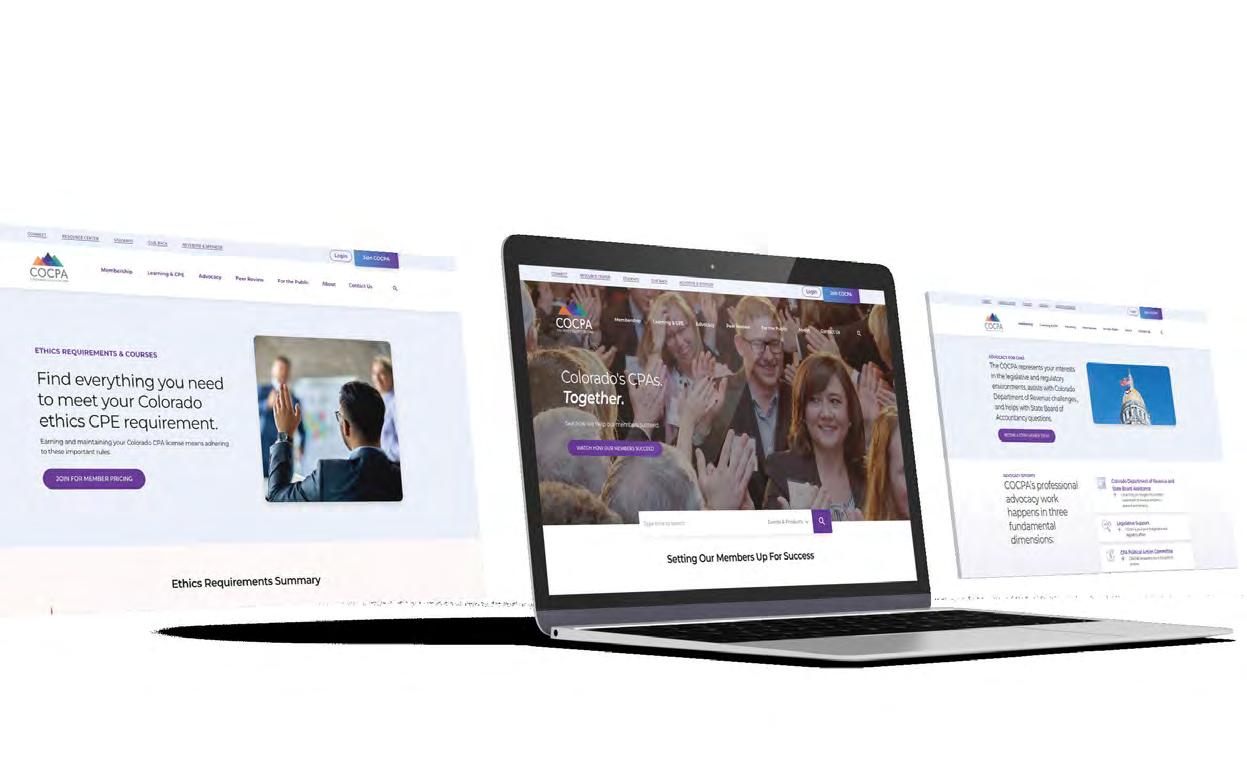
10 NewsAccount | March/April 2023
Connecting CPAs personally and meaningfully to all aspects of the accounting profession
your membership with a new online experience COLORADO SOCIETY OF CPAS
account and learning settings Improved on-demand access A new Member Directory EXPLORE THE NEW COCPA.ORG
Introducing the new
Enhacing
Easy-to-navigate
Employee Benefits: Your Newest Retention Tool
BY NATALIE ROONEY
The U.S. Bureau of Labor Statistics report that a record-breaking
47.8 million people quit their jobs in 2021, up 33% from 2020. With job openings hovering around 10.3 million, employers are seeking the right employee benefits to attract, engage, and retain top talent — all while trying to stay within their budgets.
CREATIVE NEW OPTIONS
Retaining your employees goes way beyond salaries. Stephanie Mease, director of sales for Intrepid Benefits in Denver, says that while medical, dental, and vision benefits are still the foundation of a benefits package, employers are getting more creative. “They’re adding unique offerings or enhancing what they’re already doing,” she says. “We’re seeing things like long-term disability become one of the most important pieces.”
Mental wellness is also at the top of the list for expanded benefits, and employers are choosing plans that offer unlimited mental health visits. “They want to make sure their people have access to care when it’s needed,” Mease says. “Mental health benefits were rarely talked about before the pandemic. Now it’s at the forefront. We’re dedicating more space in our benefits guides and time in enrollment
meetings to talking very specifically about mental health.”
Telehealth insurance is growing as well. Most insurance carriers cover telehealth at 100%, or for a low copay, to connect employees with assistance in non-emergency situations. Also coming to market are virtual primary care doctors. Need an X-ray? No problem, someone will come to your house. “It’s fantastic,” Mease says. “It helps manage employees’ care when they don’t have to take half a day off work to go into an office for routine checkups or lab work.”
Believe it or not, pet insurance is one of the newer and most popular offerings. “A lot of people adopted animals during the pandemic, and now they want to ensure that those animals are covered,” she says.
Employers are also partnering with third parties to offer discount marketplaces:
websites that employees visit for discounts on entertainment, travel, clothing, sports equipment, home furnishings, and kitchen equipment – you name it. “Employees can use it if they want to access great discounts, and employers don’t have to manage it with any sort of payroll deduction,” Mease says.
Over the past two years, there has also been an increase in employers offering legal and ID shield protection. Mease says nearly every employer group she works with is currently offering those services and some are even paying for a portion.
LIFESTYLE SPENDING ACCOUNTS
Newer to the benefits world are lifestyle spending accounts (LSAs), which are designed to encourage physical, financial, and emotional wellness and are popular with employees because of the flexibility that they provide.
March/April 2023 | www.cocpa.org 11 TALENT RETENTION
CONTINUED ON PAGE 12
TALENT RETENTION
CONTINUED FROM PAGE 11
Employers fund LSA accounts and decide upon the employees’ spending options. Typically, employees can choose from a variety of products, services, and activities on which to spend their LSA funds. Unlike taxadvantaged benefit accounts such as flexible spending accounts (FSAs) and health savings accounts (HSAs), employee reimbursements from LSAs are taxable as income. Many employers find LSAs appealing because of the ability to limit and direct employee spending of the employer's money. Employees like LSAs because they get to choose how to use the funds to best meet their specific interests. Ultimately, each benefits plan is unique, and the employer decides what categories and items are covered. Examples include:
PHYSICAL WELLNESS FINANCIAL WELLNESS EMOTIONAL WELLNESS
→ Athletic equipment & accessories
→ Exercise equipment
→ Gym, health club, spa, & fitness studio memberships
→ Recreational sports expenses such as rock climbing, martial arts, & tennis
→ Fitness class expenses such as yoga, Pilates, & cycling
→ Sports lesson expenses such as golf, swimming, tennis, & dance
→ Personal trainers
→ Fitness trackers
→ Nutritional supplements
→ Entry fees such as races or leagues
→ Passes such as ski, snowboard, golf, & swimming
BENEFITS AS A STRATEGY
Brandi Goldstein, office administrator for Eide Bailly in Denver, participates in campus recruiting and handles the onboarding and benefits reviews for the firm’s Colorado offices. “We are absolutely strategically using our benefits to attract and retain talent,” she says. “Today’s recruits are savvy. Their benefits questions are more detailed than they’ve ever been. They ask what funds the 401(k) is invested in. When I meet with them, it’s not just a rundown of what we offer. They do their research.”
Sometimes candidates even bring new ideas to the table. “They’ll ask specifically for something, and then we research it,” Goldstein says. “We hear about new things all the time. It’s very interesting.”
What Goldstein hears during recruiting and interviewing is that people today want
→ Financial advisory & planning services
→ Financial seminars & classes
→ Estate planning costs
→ Home purchase costs such as down payments & closing costs
→ Renter costs such as housing & utility deposits
→ Remote work costs such as high-speed internet, equipment, & furniture
choices. Eide Bailly offers employees the option of a traditional preferred provider organization (PPO) or a high deductible health plan (HDHP).
Eide Bally’s Employee Assistance Program, run through Beacon Wellbeing, looks at employees’ lifestyles, and in addition to free mental wellbeing counseling, employees can also take part in financial and legal counseling. Anyone living with the employee is also eligible for certain services. “If your roommate is impacted by these issues, you are as well,” Goldstein explains.
Eide Bailly is using LSAs to provide even more choice. The LSA has multiple categories and can be used for things like cell phone bills, student loans, home office equipment, wellness, and housekeeping. As years of service go up, the amounts in the account go up. “It’s fun money,” Goldstein says.
→ Meditation classes
→ Non-medical counseling services such as marital counseling, life coaching, parental skill counseling, & executive coaching
→ Retreats such as leadership and spiritual retreats
→ Personal development classes such as art & cooking
→ Pet care such as walkers, day care, & grooming
→ Travel such as airfare & cruise tickets
→ Camping such as equipment & fees
→ Park passes
→ Licenses such as for fishing or hunting
Other popular benefits include:
• Hybrid work environment
• A wellness room for nursing mothers and Milk Stork delivery service for nursing mothers who travel
• Adoption assistance
• Firm-sponsored philanthropy days and an additional eight hours a month that employees can use to volunteer with organizations of their choice (The firm also matches an annual donation of up to $200 to nonprofit organizations to which an employee donates.)
• Free access to the Calm app
• Business travel insurance
• Student loan refinancing
• Short- and long-term disability plans
• Accident insurance
• Professional certifications reimbursement
• CPA certification bonus
12 NewsAccount | March/April 2023
“So much of what we do is centered around work-life balance and mental health,” Goldstein explains. “We’re paying attention and acknowledging that these issues are important. It’s a big evolution.”
When Eide Bailly considers benefits each year, Goldstein says the focus is always on adding, never taking away. “Some of these decisions come from employee surveys. Being heard is important.”
The employee-focused culture starts with having the firm’s human resources team involved at the very top. “Our chief human resource officer participates in our firmwide meetings to discuss updates and continually focus on mental health,” Goldstein says. “We invite guest speakers who emphasize to our people how important it is to not forget about yourself. Employees have expressed how much it means to have a company that cares.”
Employees can submit ideas for new benefits via an internal app. If an idea receives 15 thumbs-up votes, leadership considers the idea. “A lot of great ideas have come out of that,” Goldstein says. “Things are always evolving.”
THE GOOD KIND OF STATUS QUO
Heather Britton, CEBS, director of benefits and wellness in the City and County of Denver’s Office of Human Resources, says that over the past three years, benefits haven’t necessarily expanded, but the department has implemented a new goal: limiting benefits cost increases for employees and maintaining a $600 wellness incentive, which has become increasingly important as the city works to fill several hundred open positions after a retirement buyout in 2020.
Britton has been with the city for 21 years and describes the first 10 years as having to chase dollars. “Every year there was a premium increase, and we passed it along as benefits became exceedingly expensive,” she says. Seven years ago, however, the city made a big change to mitigate the increases by switching from health maintenance organizations (HMOs) to HDHPs and HSAs. “We switched plans, stabilized rates and contributions, and stopped passing along every increase that was unmanaged and unbudgeted. We were in a recession and the City Council was looking for ways to cut costs. That’s not the case now. We’re absorbing most cost increases.”
The effort to maintain the status quo makes it easier for employees to plan. “We think it’s important to maintain the costs to which employees are accustomed. This is a case where the status quo is great,” Britton says. “When September rolls around, our employees don’t have to worry about what it will look like for next year.” Overall, Britton says the city is focused on not changing benefits in any way that would negatively impact employees. “Every benefit change is examined through that lens. If it negatively impacts employees, we rethink it.”
Another shift has taken place in the city’s pension compensation. Britton says the portion that employees pay has actually dropped.
Other additions to the benefits program include more on-site resources. “We’ve hired two counselors and a full-time nurse fully dedicated to our employees,” Britton says. “We’re being more creative with our offerings.”
with banks or credit unions to offer financial wellness programs. One option encourages savings: when an employee deposits a certain amount of money by a deadline, the employer will match that amount. “This helps employees save money for times of need versus living paycheck to paycheck,” she says.
Other programs can help pay down student loans or pay off credit cards, typically by taking over payments and then using payroll deduction to pay down the financial liabilities. “There is a lot of education and details around these programs, but for groups that have put the programs in place, it’s a sticky piece for retaining employees,” Mease says.
MAKING THE MOST OF WHAT YOU’VE GOT
Mease says it can be challenging for smaller employers to compete with larger organizations on the benefits front. She recommends focusing first on employee health, via medical benefits, and then con-
With its downtown location, Britton says one of the biggest challenges is parking. The city subsidized parking through 2022 and is providing each employee with a free transit pass through the end of 2023. “Employees told us they needed help with parking if they were coming back to the office.”
As of Jan. 1, 2023, the city began offering eight weeks of paid leave to care for themselves and family members. “There was a big demand for such a program,” Britton says.
Britton says that Denver City Council remains very aware of the need for a rich benefits package. “They know how important it is for recruiting and retention. They do not want us to cut benefits anywhere.”
FINANCIAL WELLNESS BENEFITS
Statistics show that much of the U.S. population has less than $500 in the bank at any given time. Mease says there are some great financial wellness tools that employers can put in place to help employees financially. Many organizations partner
sidering add-ons. While larger employers can offer financially oriented incentives, companies of any size can offer things like ID and legal shield, or create unique offerings with the discount programs and wellness offerings. “Work with your benefits advisor to find ways to set up a unique offering while still taking care of medical health,” she advises.
As the talent shortage persists, Goldstein says businesses are recognizing they have to evolve. Companies are putting effort and resources into the process with an emphasis on meeting employees’ needs as a whole person, especially in the aftermath of COVID. “No one has the magic answer, but I think what we’re coming out of on the other side is going to be great.”
Learn more about this and other topics during the COCPA’s biweekly lunch-andlearn series, beginning in May. Visit cocpa.org for more information.
March/April 2023 | www.cocpa.org 13
The employee-focused culture starts with having the firm’s human resources team involved at the very top.
ESG: Finding Opportunities Amid Uncertainty

















 BY NATALIE ROONEY
BY NATALIE ROONEY
Investors’ attention to environmental, social, and governance (ESG) considerations continues to grow. COCPA members share how they’re helping clients prepare for the new opportuni ties while regulations are still in the works.
ESG reporting is an organization’s public disclosure of its environmental, social, and corporate governance data (ESG). The purpose of an ESG report is to ensure transparency into the organization’s ESG activities and measure its sustainability performance, allowing stakeholders such as investors and consumers to make better-informed decisions.
There are an increasing number of mandatory ESG regulations around the world. More are on the horizon, including here in the United States, where the Securities and Exchange Commission (SEC) says it will enact several new regulations before May, including disclosure requirements focused on climate risk.
Many of the proposed rules reflect the often-stated concern of SEC Chair Gary Gensler that publicly traded companies do not provide investors with enough information for determining the range and degree of risks to business operations. “Taken together, the items on this agenda would advance our three-part mission: to protect investors, maintain fair, orderly and efficient markets, and facilitate capital formation,” Gensler said in a statement.
ESG extends far beyond the “E,” although environmental issues typically spring to mind when the topic of ESG comes up:
















EThe E in ESG, environmental criteria, includes the energy that your company takes in and the waste it discharges, the resources it needs, and the consequences for living beings as a result. E also encompasses carbon emissions and climate change. Every company uses energy and resources; every company affects, and is affected by, the environment. “E” is where the SEC is currently focusing its regulatory efforts.
S, social criteria, addresses the relationships that your company has and the reputation it fosters with people and institutions in the communities where you do business. S includes labor relations and diversity and inclusion, and recognizes that every company operates within a broader, diverse society.
G, governance, is the internal system of practices, controls, and procedures that your company adopts in order to govern itself, make effective decisions, comply with the law, and meet the needs of external stakeholders.
HELPING CLIENTS FIND OPPORTUNITIES












Jim Burton, CPA, ESG and sustainability partner for Grant Thornton (GT) in Denver and a member of the COCPA ESG Working Group, says when GT leaders were going through their business planning process for 2020, they noticed that ESG kept presenting itself.
“We decided it was time to approach ESG in a more organized fashion,” he says, explaining that for several years prior, the firm had been offering ad hoc ESG solutions and services in advisory, audit, and tax. Burton himself left his chief auditor role and moved to the ESG group in spring 2021. “It has been going nonstop ever since,” he says. “It has been a great opportunity to tie all of our skill sets together and look for common needs that relate to very common and historic business opportunities and challenges that haven’t been perceived through an ESG lens. Now we’re coordinating everything.”
Burton says clients are turning to the firm for insight and help with defining risks and strategies for approaching opportunities. “One of the things we have to help clients understand is that notwithstanding today’s emotional, political, or geographic attention, the vast majority
14 NewsAccount | March/April 2023
SUSTAINABILITY REPORTING
S G
of ESG issues are actually business problems they’ve already dealt with for years,” he says. “Changes in consumer demand, regulations, the supply chain – these are all challenges they’ve faced for a long time.”
The differences come in what Burton calls “the next evolution of concern and opportunity,” which is being driven by stakeholders, many of whom have become far more active and interested in an organization’s approach, considerations, and strategies around these topics. “We’re actively involved in trying to understand what they want to know about these matters so companies can make their own assessment with respect to what’s occurring. When you think about it through an investment lens, more corporate organizations have focused on improved revenue growth, creating value from an organizational perspective. Today, many of these issues in question are more indirect contributions to that traditional organizational value,” Burton says. “People talk about these as non-financial items, but they all manifest themselves in enterprise economic value at some point.”
One of the challenges of ESG reporting comes from changing the mindset from
Burton says when the firm is called in, they want to ask questions and develop an understanding of needs rather than going out and simply telling a client what they should be doing from an ESG perspective. “Clients need help deciphering and understanding what’s important to them. They want to know how to deal with expectations from stakeholders, investors, customers, and employees who continually ask questions about various elements of an organization’s operations.” He describes a strategy as stakeholders ask questions: “The first time, we’ll answer it. The second time, we start wondering if this is a trend. By the third time, it’s probably time to deal with it.”
Burton emphasizes that even when companies are under pressure from stakeholders to address various ESG issues, it’s important to consider how an action impacts an organization’s strategy.
ANTICIPATING REGULATIONS
Greg Pfahl, CPA, partner in the Moss Adams Assurance Services division in Denver, works closely with the separate group providing ESG services. As an audit partner, he says he can see how significantly ESG impacts all clients. The SEC’s proposed rule
to publicly held companies. Even private companies need to be paying attention to what the SEC is doing so they understand what information they may be asked to provide to their customers.”
Those conversations include discussions about what elements to measure, how to measure them, and how to report. “There are myriad standards. We’re helping them determine what applies to them, and then how to design and implement a process to move forward,” Pfahl says.
Pfahl says organizations might also be contractually required to report ESG issues by a lender or a customer. “From a regulatory perspective, companies might not need to deal with ESG disclosures for themselves,” he says. “But the trickle down from the companies they sell to may push the requirement forward for them.”
FINDING THE BALANCE
What should a company’s leaders do when they can’t see the imminent business case for addressing ESG issues? This is where controversy can surround the issue, especially when stakeholders are applying pressure and potentially generating controversy in the press and via social media.
looking beyond the here and now and taking a longer-term view with groups who are used to taking a qualitative, financially motivated approach. “If I enter a purchase order for a lower product cost, I can see the impact immediately,” Burton explains. “But investing in different distribution channels or supplies, the benefit may come way down the road. ESG is a different element for entities to deal with. We’re using a different time horizon lens.”
It's also important for companies to look beyond what they may read in the press every day as ESG becomes an increasingly politically charged term. “Really looking at how ESG affects the organization’s short-, mid-, and long-term objectives and outcomes is where we spend a lot of time on these projects,” Burton says.
release in March 2022 has public companies on their toes. “They’re keenly aware of the issue and the cost to comply with those rules depending on how they come out,” Pfahl says.
In November, the Federal Acquisition Regulatory Council proposed its own set of ESG rules that are like those in the SEC proposal but would impact companies doing business with the government. “Those rules will impact many aerospace companies and other sectors with governmental contracts,” Pfahl says.
Whether a company is public or private, conversations around ESG must still happen, Pfahl says. “We’re communicating with our private clients about the SEC’s proposed rules because those clients might be selling
Burton says it’s important for management and boards to be actively involved in understanding ESG decisions and the effect on the company today and in the future. “If there are things that are completely contrary to the company’s business strategy, you’re not going to change your business that much in order to simply appease or make a stakeholder group feel like they’ve had something done on their behalf,” Burton says. “Continue to focus on developing and implementing your strategy. Addressing ESG isn’t about reacting and making individual decisions just because someone asked.”
In the publicly held world, raters and data aggregators are reporting on companies’ ESG profiles. Burton counsels clients not to chase ratings but to understand what goes into the ratings and why the ratings are what they are. Then they can assess what they might do to remain consistent with their strategy while improving their ratings.
Pfahl suggests focusing on the genesis of ESG as a business issue and the elements
March/April 2023 | www.cocpa.org 15
CONTINUED ON PAGE 16
Burton emphasizes that even when companies are under pressure from stakeholders to address various ESG issues, it’s important to consider how an action impacts an organization’s strategy.
SUSTAINABILITY REPORTING
CONTINUED FROM PAGE 15
most impactful to the organization. “ESG issues will vary by industry and company,” he says, adding that it may pay to start addressing key issues sooner rather than later. “It’s not necessarily appropriate to wait around for the regulators to tell you what to do. There are cost-benefit reasons for doing this depending on your business and industry,” he says.
The Moss Adams ESG team advises clients to begin by assembling appropriate cross-functional teams focused heavily on the planning aspect. Decide what information is most important to various stakeholder groups, which will lead to the core of the outcome and ultimately determine what is reported.

IS ESG GOOD BUSINESS?
Burton encourages clients to keep politics out of their decisionmaking process. “Most of what we read in the press about the politicization of ESG doesn’t consider all of the elements involved,” he says. “Don’t let the emotion and sensationalism of the topic keep you from talking to your clients or your companies about how these common business challenges are affecting the organization. Focus on the issues that benefit the organization now and into the future, and make sure you’re addressing them.”
Another business bonus: a company’s ESG strategy can be a key part of its recruiting and retention efforts. “Even when there’s not a perceived or evident financial case for ESG, it plays a role in recruiting and retaining talent,” Pfahl says. “We’re seeing more data in the current environment indicating that employees are much more likely to join a company with a significant focus on ESG issues.”
ESG is still new and unfamiliar, and that can cause fear and uncertainty, but Burton says one day, ESG decisions will simply be known as business decisions. “COCPA members are perfectly positioned to help clients unwind the issues and understand the impact.”
The COCPA ESG Working Group is exploring the development of an integrated report for the Society, including what to measure and report. In addition, the group is looking at ESG resources to provide to COCPA members. For more information on the ESG Working Group, contact Kelli Davis at kelli@cocpa.org.
16 NewsAccount | March/April 2023
BY NATALIE ROONEY
March/April 2023 | www.cocpa.org 17 SMALL BUSINESS MATTERS
Colorado Small Businesses Cope
Regulatory Overload
Feeling the Squeeze:
with
RED TAPE: Excessive bureaucracy or adherence to rules and formalities, especially in public business.
Sometimes, new regulations sound great in theory, but create unintended consequences and endless red tape. That's especially true when multiple pieces of legislation hit small businesses in a short span of time. Can Colorado’s small businesses afford to keep their doors open, or will they be legislated out of existence?
Lynne Lehr-Buck CPA, CGMA, president of IntraScope Accounting Solutions, LLC, Highlands Ranch, has small business clients that are truly small businesses. “They’re just average people trying their best,” she says. “They’re good at what they do, but they’re not financially astute. They need help.”
The past year has dealt one regulatory blow after another to Colorado’s small businesses. Many of the new regulations took effect on Jan. 1, 2023. Even in Lehr-Buck’s own office, she feels the strain. “It’s just one thing after another,” she says. “I don’t know how people do this without someone to help them.”
The same frustrations are being felt all over Colorado. Brad Tafoya, CPA, CFP®, Registered Life Planner at Tafoya Barrett and Associates PC, Durango, works with a mix of smalltown clients: restaurants, Realtors, professional service firms, light manufacturers, and retailers, all of whom are feeling the regulatory squeeze. “It’s becoming more difficult and more expensive for small businesses to be sustainable and make a profit,” Tafoya says.
COLORADO’S REGULATORY LAUNDRY LIST
The list of regulations currently on small business owners’ plates includes:
Colorado SecureSavings
The new program provides a retirement solution to private-sector employers at no cost. All Colorado businesses with five or
more employees (who have worked for a company for at least 180 days) that have been in business for two or more years will be required to register for the program if they don’t already offer a tax-qualified retirement savings plan to any employees.
Tafoya points out that even though employers aren’t required to contribute, they still must sign up so that employees can take part. “There’s still registration and paperwork involved for small businesses,” he says.
Colorado Family and Medical Leave Insurance
As of Jan. 1, under the Family and Medical Leave Insurance (FAMLI) program, Colorado employers and employees began paying into a state program that will allow workers at all private companies to take extended leave to care for themselves and/or a family member. Beginning in 2024, workers can begin requesting as much as 12 weeks of partially paid leave per year.
Tafoya says clients are trying to determine who is eligible and why. “They’ve had to stop and get their arms around this so they can sign up and do the right thing,” he says, adding that this comes on the heels of last year’s new sick-time rules.
Retail Delivery Fee
Effective July 1, 2022, Colorado began imposing a 27-cent retail delivery fee on all deliveries by motor vehicle to a location in Colorado
with at least one item of tangible personal property subject to state sales or use tax. The fee is generating a lot of questions from clients, Tafoya says. “A window installer called and asked if his customer orders a window, but the installer is bringing the window for installation, is he also considered to be delivering it?” Tafoya says. “Small businesses are being forced to focus on issues like this daily rather than running their business.”
Plastic shopping bag fee
As of Jan. 1, everyone pays 10 cents to use single-use plastic or paper bags in stores. The law does not apply to all bags. Restaurants, for example, are exempt, though it's possible that customers may still see a fee on their bills. The new law allows municipalities with an existing law to charge more for bags if the fees are already higher.
The fee is a precursor to 2024, when Colorado will officially ban single-use plastic bags.
Minimum wage increase
For 2023, the Colorado hourly minimum wage rate is $13.65, which is $1.09 higher than in 2022. It's the largest annual jump in the minimum wage in Colorado since 2007.
Denver has one of the nation’s highest statutory hourly minimum wages and the highest real minimum wage. Since Jan. 1, the city’s statutory hourly minimum wage increased to $17.29, second only to Seattle’s minimum wage of $18.69 per hour.
LEANING ON CPA s
Tafoya says clients are turning to their CPAs more than ever. “They’re specialists in their own industries, so they’re turning to us for help.”
Throw all of this on top of the fact that Colorado continues to decouple its state tax laws from the federal government, and Tafoya says
A mini ice cream cone to end one’s meal is a tradition at Jimmy’s Jersey Street Café in Denver. Owner Jimmy Lambatos works hard to keep up with the flurry of regulatory demands placed on small business owners.

SMALL BUSINESS MATTERS
it’s incredibly difficult not only for CPAs, but also for their business clients who might have previously been able to do some of their own tax return work. These days, it’s no longer feasible.
One notable example: in 2021 and 2022, meals were 100% deductible at the federal level, but Colorado isn’t following that portion of the tax code. “Very few clients understand that,” Tafoya says. “It puts more pressure on the small business and on us to gather that information. States are trying to make up for lost revenue and recapture dollars any way they can, and it’s happening at the expense of small business owners.”
CHECKING IN WITH CLIENTS
As Lehr-Buck received notices of the new regulations, she began reaching out to clients. “They’d ask what the heck it was all about,” she says. Immediate issues came to light: Accounting software wasn’t set up to handle the bag fee. “People aren’t charging for it because their software can’t do it.”
The same software issues apply to time-off policies that took effect a year ago. “Soft-
effect on Jan. 1, 2022, for businesses with fewer than 16 employees), the delivery fee, the bag fee, Secure Savings, and the FAMLI program. “That’s five new regulations in 18 months,” she says. “All of this takes time when you’re running your own business and trying to figure it out. Most clients want to get things right, but it’s getting harder and harder for them.”
INCREASING EXPENSES
Jimmy Lambatos was in the process of opening Jimmy’s Jersey Street Café in Denver’s Mayfair area right as the COVID-19 pandemic hit. With nearly four decades of restaurant experience under his belt, he’s no neophyte when it comes to the industry. After missing his original opening date by eight months and overcoming multiple challenges – from getting his liquor license to dealing with lease issues and finalizing permits – it seemed like the worst was behind him. But the hits just keep coming – this time from his own state legislators.
Lambatos stays on top of regulatory issues by reading restaurant trade publications and
match it. This all makes for higher prices for the consumer.”
Despite the challenges, Lambatos is trying to comply with all of the changes. He does speak up when things just don’t make sense, like when he told the City of Denver that their rules for tipping during COVID were nonsensical.
Lambatos says he wishes legislators would consider the impact on individual industries before bundling everyone together in one group. “If state regulators had ever been in business for themselves or spent more time talking to industries that are in such need of help at this time, instead of just mandating rules and regulations, they’d better serve us.”
“LET BUSINESSES WORK IT OUT”
ware can’t calculate giving one hour of sick time for 30 hours worked,” Lehr-Buck says. “Legislators are writing these laws without talking to business or software people. They’re sitting in a room and thinking it’s such a great idea to implement, but they don’t give people enough time to prepare.”
Lehr-Buck says the state information websites often leave small businesses more confused. “We now have four different websites to visit to do business in Colorado.” Restaurants with 45 employees – and by the way, the definition of an employee differs with every law – must notify every employee that he or she is now eligible to contribute to a retirement plan. That includes, for example, teenagers who work five hours a week. They must also explain to employees what an IRA is and that if they don’t opt out of the program they’re in by default, with money deducted accordingly from their wages.
Lehr-Buck ticks off the new regulations: the new paid sick days policy (which took
Colorado business journals. He’s in charge of everything at the restaurant: purchasing, payroll, accounting, hiring, scheduling, and training, and he knows exactly what he makes by the second day of every month. The new minimum wage – which brings an 11% increase in labor costs – tops the list of Lambatos’ frustrations. “It’s major,” he says. “Just that is costing me an extra $100 a day.” Lambatos says that state legislators don’t seem to understand how their actions impact the customer experience either. “Increased expenses mean increased food prices,” he says. “The government needs to take all of these things into consideration when they decide to do something.”
Lambatos also has concerns about the FAMLI program. “People get jobs in hospitality while they’re in school,” he says, adding that even though some people do make it a livelihood, it’s ultimately a transient industry. “Now they’re forcing the issue of paying for time off for family leave and having the employer
Lehr-Buck says the state government doesn’t need to tell her – or her clients – how to make decisions about their businesses. “I offer sick time and retirement because I want people to work for me,” she points out. “I want to be competitive. Let the market work it out. I don’t think they understand that all of this cuts into the bottom line of these small businesspeople.” Tafoya would like to see legislators sit down with small business owners and talk about the impacts to both the business and its employees before taking action.
“I remember reading through the ballot initiatives and thinking, ‘Wow, this is just more regulation, and it’s going to make it harder.’ Those who don’t own businesses think these things are great, and they vote for it, but they don’t really understand it.”
Looking down the road, Tafoya thinks it’s going to be harder and harder for small businesses to compete when faced with so many regulations and rules that take time out of running their day-to-day operations. “I want to pay my employees more, and they need to be able to make a good living, but I wonder about the sustainability of all of it,” he muses. “We’re forced to do it to keep staff. It’s hard, and it’s only going to get harder. Most small businesses care about their employees and families and take very good care of them. Let us figure out what is best together rather than burdening us with new regulations that most employees don’t even want.”
March/April 2023 | www.cocpa.org 19
It’s becoming more difficult and more expensive for small businesses to be sustainable and make a profit.
AICPA Leadership Academy Inspires Emerging Leaders to Make a Difference
 BY KELLI DAVIS
BY KELLI DAVIS
When 35 emerging leaders from within the profession –representing 27 states and a diverse mix of practice areas, organizations, and backgrounds – gathered for the 2022 AICPA Leadership Academy, COCPA members Caitlyn O'Neil, CPA, and Blaise Wabo, CPA, were among them.
The 14th season of the Academy, which strengthens and expands the leadership skills of promising young CPAs as they network with a peer group of talented and motivated professionals, took place last October in Durham, North Carolina.
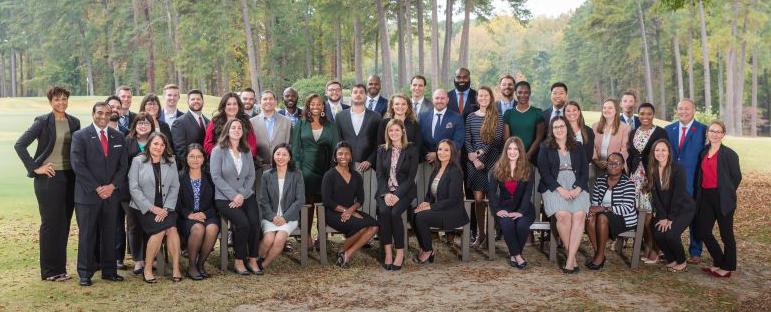
NEW CONNECTIONS, BROADENED PERSPECTIVES
O’Neil, who is a senior tax manager with CBIZ MHM, LLC, Denver, serves on the COCPA Diversity, Equity, and Inclusion Committee, Young Professionals Council, and Financial Literacy Committee, and is an Educational Foundation Trustee. She also serves on the Colorado Future Business Leaders of America (FBLA) Board of Directors and was named a 2021 COCPA Everyday Heroine. She describes the four-day immersive experience as “life changing.” She and her fellow attendees, whom she describes as “rock stars,” participated in career-development workshops and sessions with prominent AICPA leaders such as Chair Anoop Natwar Mehta, CPA, CGMA; President and CEO Barry Melancon, CPA, CGMA; and Executive Vice President of Business Engagement and Growth Tom Hood, CPA/CITP, CGMA.
“It’s hard to describe, but the networking experience was phenomenal,” O’Neil says, adding that by the end of the Academy, “I felt that I made 35 new friends.”
O’Neil also found significant value in the pre-Academy work, including assessments and inventories – also completed by her colleagues, friends, and family members – that helped to identify her strengths, weaknesses, and values. “I took this information to my primary mentor, and we set goals and strategized on how to improve upon my weak points. In addition, I learned how to allocate energy into different areas,” she says, including setting boundaries. “Through this experience, I made tangible plans to create boundaries in my life so I do not become overwhelmed.”
Wabo, healthcare and financial services director with A-LIGN in Denver, learned that “leadership is more than just competence and character. Leadership is mostly about consciousness. Conscious leadership is, in part, the integration of character strengths into decision making and relationship building. It’s about embracing adversity and complexity and still finding your way,” he says.
He, too, found great value in the newfound connections that he made with his Academy colleagues. “The professional connections and friendships I made at the Leadership Academy will help take my career to new heights,” he says. I was reminded that leadership is a journey, and you cannot do it alone. You need to be intentional about investing in
yourself, giving back to the community and the profession, and networking with likeminded professionals.”
Wabo adds that the experience widened his lens and underscored the importance of “serving, giving back, and elevating the next generation to evolve the profession. The Academy served as a good reminder that the accounting profession is bigger than my firm, industry, and the clients who I serve.”
Named one of the Denver Business Journal’s 2022 40 Under 40, Wabo serves as A-LIGN’s Diversity, Equity, and Inclusion Network chair. He serves on the ISACA Denver Board as vice president of membership, where he is actively involved in mentoring college students. Through his involvement in Junior Achievement and Finance Park, Wabo teaches financial literacy and cybersecurity to middle and high school students.
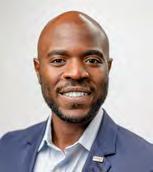
A TRADITION OF EXCELLENCE
Since its inception in 2009, more than 475 CPAs, ranging in age from 25 to 35, have graduated from the program. Attendees are recommended by their employers, state CPA societies, and volunteer organizations. To date, 16 Colorado CPAs have graduated from the Academy.
20 NewsAccount | March/April 2023 YOUNG PROFESSIONALS
The 2023 AICPA Leadership Academy will take place Dec. 11-14 in Durham, North Carolina, with applications accepted through June 30, 2023. To learn more, visit www.aicpa.org/resources/landing/aicpa-leadership-academy.
GROW your leadership skills & network with other young professionals
LEADFIT 2023, AN INNOVATIVE LEADERSHIP
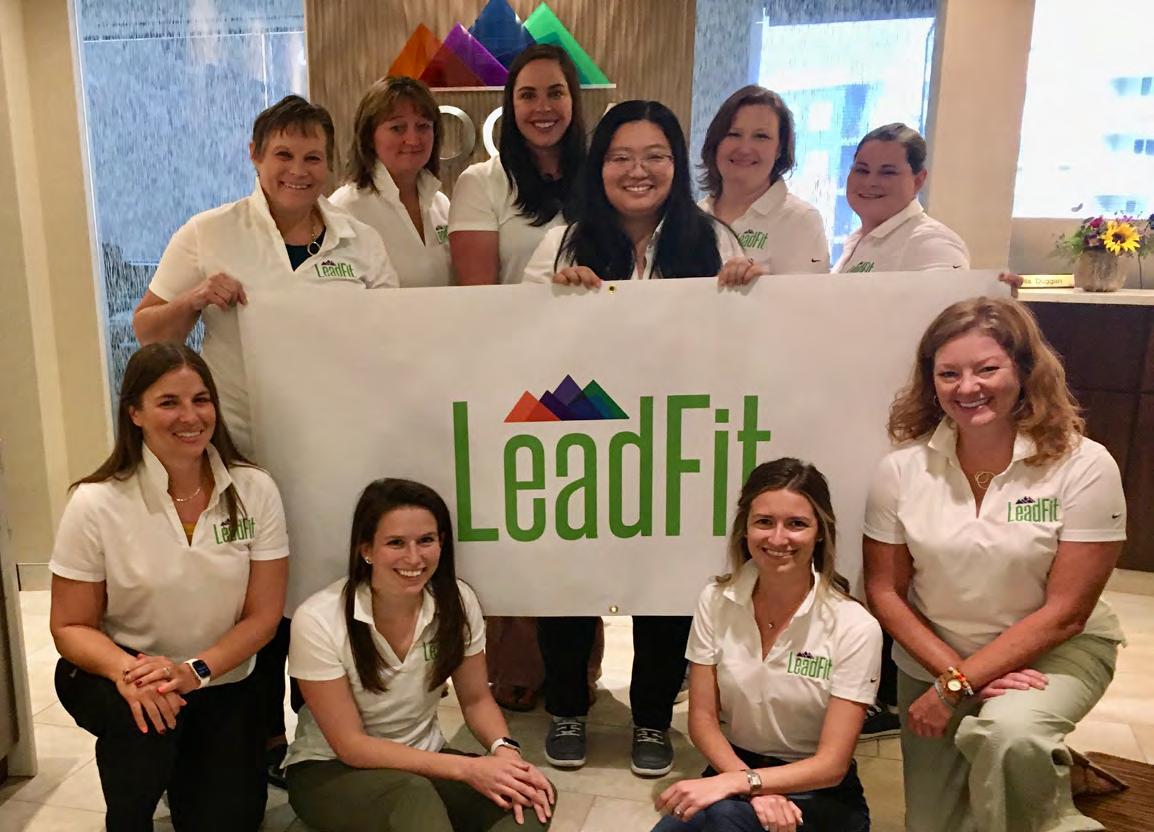
DEVELOPMENT PROGRAM sponsored by the Colorado Society of CPAs, is specifically designed to give you the knowledge, skills, and practice to achieve your personal and professional goals. Also built in are plenty of opportunities for networking, problem solving, and sharing experiences with your LeadFit colleagues.
Make this the year that you gain the leadership skills to take you to the next level!
Session Dates
JULY 21 8:30 am-5 pm
AUGUST 25 8:30 am-12:30 pm
OCTOBER 6 8:30 am-12:30 pm
NOVEMBER 2 8:30 am-5 pm
The program is limited to 16 participants who can commit to attending all four sessions. Visit cocpa.org or scan the QR code for more information.

March/April 2023 | www.cocpa.org 21
CO CPA COLORA DO SOCIETY OF CPAS
Protecting Yourself from Scams
BY BRUCE A. GRAY, CPA, CGMA

Technology provides us with tools that make our daily lives more convenient. With the ability to access data while on the move and from virtually any device with internet access, search engines that can help us find answers to our questions in seconds, and handheld apps right in our phone or tablet, things have never been so convenient.
Great, right? Yes and no. The fact that we transmit and store so much data via the internet leaves us with a vulnerability that was not much of a problem 20 years ago. Information is readily accessible for those who have the tools and the incentive to find it. This makes us vulnerable to scams perpetrated by the unscrupulous.

Some of these scams use the very technology that makes our lives convenient, while others simply use non-technological means to exploit the information that they can obtain via our “wired” lives. The availability of information will only increase as time goes on, so what is the best way to balance convenience with the importance of protecting oneself from scams?
1. As professionals, we have a high standard for protecting the personal data of our clients and employers. But do you exercise the same caution with your own personal data? Do you carelessly discard documents containing identifying information such as your social security number, birthdate, name, and address without shredding the document? Or worse, do you email such data in an unencrypted format? Someone who is intent on taking advantage would have enough information from the above data items to steal your identity and possibly open credit accounts in your name.

2. How well do you control your online presence? Social media, dating, retail, and even search engines capture user data that can be exploited. It is important to manage privacy settings, use strong passwords (different ones for different sites), and be judicious with what information you provide online.
3. Be sure you know who you are engaging when online. Simple, easily accessible tools allow true email addresses and URLs to be hidden or appear to be from someone/somewhere else. Take clicking on a link in an email because the sender is someone you know. Or is it? Was the person’s email account hacked? Is the sender’s email address really where it’s coming from? Once someone’s account has been hacked, the hacker can send email from that person’s account, leading you to believe that the email legitimately came from the person you know. Be suspicious of emails with links, even from people you know. Rather than clicking on the link, verify where it’s going using the “hover” method: Hold your mouse over a link in an email or on a website, and most tools will show you the actual URL of the link instead of what is appearing in the email text. I once received an email from a family member with instructions to open an important document in Google Docs. When I hovered over the link, the displayed URL had an unusual segment in the URL that I wouldn’t have expected if I were being directed to a Google Drive document.
4. An extension of knowing with whom you are engaging can be applied when receiving a phone call. Several recent scams have the caller identifying him- or herself as an IRS agent, a law enforcement officer, or simply doesn’t identify the caller at all. They can then explain that they need you to provide money for back taxes or to help bail someone out of jail. The threat is that if you fail to comply, you will be arrested. Even Caller ID can
22 NewsAccount | March/April 2023
TECHNOLOGY
be manipulated to show that the call is coming from someone else. Don’t offer any information on the phone unless you are certain you know with whom you are speaking. Try to confirm the allegations via alternative means. Also be aware that the IRS never contacts taxpayers first by telephone. Initial communication from the IRS is always via letter. If someone claims to be a friend or relative and asks for money to resolve a problem, say that you need to call back and contact the friend or relative independently to confirm.
5. Consider having a low limit credit card for internet purchases, or use a PayPal account that cannot automatically draw on a credit card or bank account. E-commerce is growing and is a part of our everyday lives, but it can be an easy way for someone to access your money if you are not prudent.
6. Texting personal data is also risky. Text messages move over cellular networks and can be accessed in the same way as emails and other internet communication.
7. Use common sense. While this may seem almost too obvious, people sometimes don’t stop to think about whether or not a scenario passes the “smell” test. Does it make sense? Does it seem too good to be true, or too horrible to be possible? These questions should at least give you pause before you fall victim to a scam.
8. Be aware. Stay up to date on scams that are publicized in the news media. If you find yourself in a situation that resembles one that you’ve seen in the news, take the time to consider
whether you are about to become a victim. Knowledge is power – use it.
9. The elderly are often easy targets for perpetrators of scams. If you are elderly or care for elderly friends or relatives, make sure that you adopt or instill a healthy sense of skepticism.
Scams are not a new phenomenon. There have always been those who take advantage and exploit others for their own gain. The challenge in today’s world is the ease with which perpetrators can obtain information and hide their identity using technological tools. As is true for many situations, the best defense is a good offense. Be aware of your behaviors that put you at risk. Monitor your credit and online presence regularly. (Do a Google search on yourself – you’ll probably be surprised at what you find).
Should you find yourself a victim, be sure to notify the authorities and any sites or institutions through which the scam was accomplished. All banks, the IRS, and many retailers have fraud departments to address issues of identity theft and scams. Don’t be a victim. Instead, be a victor by knowing what to look for to avoid scams.
Originally published in California CPA Magazine.
Bruce A. Gray, CPA, CGMA, Milliken, is a member of the COCPA Technology Users Group. Contact him at bruce@bagcpa.net. For information on and to join the Technology Users Group, contact Stacy Svendsen at stacy@cocpa.org.
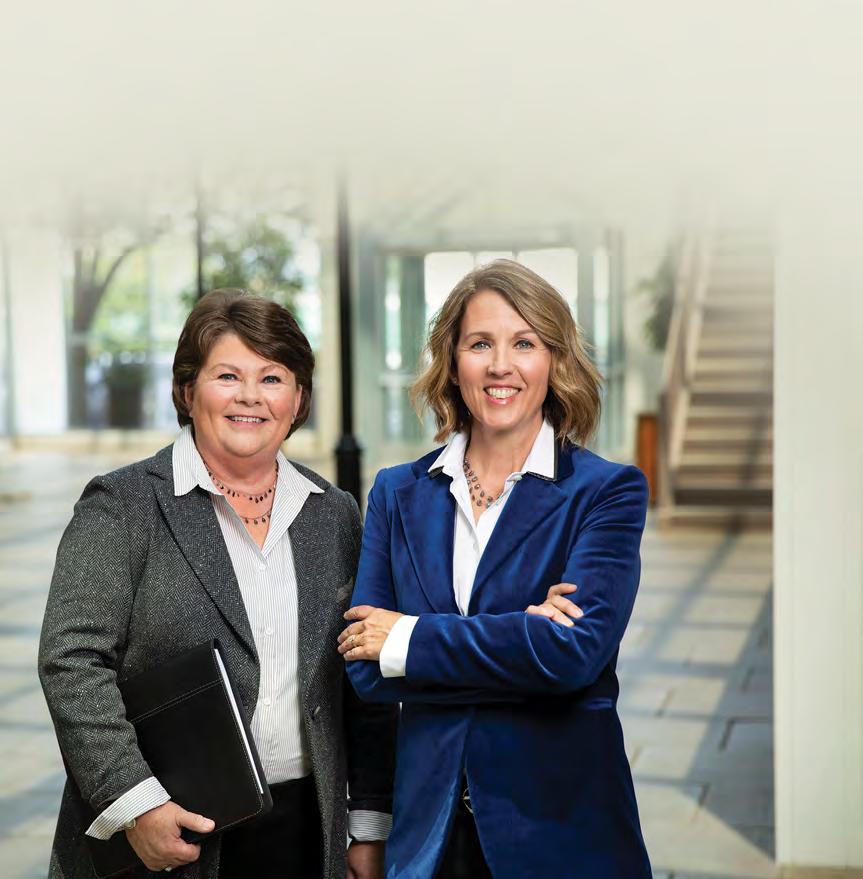
March/April 2023 | www.cocpa.org 23
Let us make it simple. Selling your firm is complex. Learn more and get a FREE Market Analysis at www.AccountingBizBrokers.com kathy@accountingbizbrokers.com christy@accountingbizbrokers.com Kathy Brents, CPA, CBI 501-514-4928 Christy Hudson, CBI 501-499-4357 Office 866-260-2793 Confidential Experienced Professional
What Data Can Do for You
BY NATALIE ROONEY
Data and data jobs have been heralded as the new frontier, bringing transformation to the accounting profession. The World Economic Forum recently named data analysts and data scientists as the most in-demand positions across all industries.

Kacee Johnson, vice president of strategy and innovation for CPA.com, keeps a pulse on how accounting firms are adopting emerging technologies and the role that data plays in various practice areas.
“In speaking with firms, the trend of hiring data analysts is becoming more popular within firms,” Johnson says.
There are distinctions in the roles of data analysts and data scientists. While a data analyst may spend more time on routine analysis, regularly providing reports, a data scientist may design the way in which data is stored, manipulated, and analyzed. Simply put, a data analyst makes sense of existing data, whereas a data scientist works on new ways to capture and analyze the data that analysts use.
“Firms are employing more data analytics talent so they can understand the already-processed data,” Johnson says. “Once the information is available, people need to know how to access, organize, read, and analyze it for their various business intelligence needs.”
USING THE DATA
Johnson outlines three practice areas where the accounting profession is using artificial intelligence (AI) to maximize the potential of their data:
1. AUDIT: New solutions enable the use and analysis of full data sets, not just a sample.
2. RISK AND FRAUD: Analysis can detect potential fraud by spotting anomalies or
deviations from “normal” behavior or patterns presented in the data.
3. CONSULTANCY/ADVISORY: Thanks to AI, firms and organizations can understand and make sense of numbers for clients, both predictive and prescriptive, and it’s happening across industries. “Organizations are using data to understand their customers,” Johnson says. “They’re building out client personas to reveal the true nature of opportunities and trends, and becoming more sophisticated in their business development functions. Data offers a way to become more valued advisors. You can tell clients, ‘This is what we see, what we think is happening, and what will happen if you continue on this trend.’”
Johnson says while data offers opportunities to clients, it’s also beneficial internally. “We can absolutely use this data to grow our own organizations.”
NOW HIRING
At the University of Denver’s Daniels Career Services office, Bob Kumagai, executive director of career services, and Jessica Bontrager, assistant director of career services, are keeping a close eye on hiring trends. “Firms, specifically the Big 4, have told us consistently over the last three to four years that they see the need for higher data skills amongst their hires,” Kumagai says. “Data skills continue to increase in value.”
The DU School of Accountancy has been adjusting its curriculum to include more technical, data-intensive courses. A new master’s degree adjacent to the existing master of accountancy (MAcc) program also addresses the demand for data-savvy graduates. “It’s all in response to what firms are telling us, which is that data is still a big deal,” Kumagai says.
“Today’s graduates need specialized skills such as data, cloud-based accounting, processes, programming software, and managing people. That’s where we’re headed,” Bontrager says, noting that students are looking closely at career options in industry rather than public accounting. “They enjoy accounting, math, and science, but don’t see themselves in a firm environment. They want to be in an industry that aligns with their interests.”
Bontrager says there’s good news for the profession: research shows those who go on to earn the CPA designation not only demonstrate their expertise and skills, but also enjoy a competitive edge and higher pay. “They have a more niche fit and higher job satisfaction as well,” she says. “It has always been a huge plus for accounting majors to pursue their CPA licenses, but even more so with regard to the industry. We see a continuing stable industry with the expectation to have more specialized skills such as AI.” The topic of salaries continues to be at the forefront of conversations. “Students have expressed frustration about why salaries haven’t been adjusted for first-year MAcc students,” Kumagai says. “We continue to see leakage from accounting into other majors like finance or business analytics because students look at the starting salaries and wonder what the deal is.”
DATA IS A NECESSITY
So, is data an absolute necessity? “I would say yes, 100%,” Johnson says. “Data is the future.” Smaller organizations that can’t afford to bring on a full-time person to do the work shouldn’t despair; technology is here to help. “There are so many solutions available to serve as your data analyst,” she says. “You still have to understand what the data means, but software is solving a lot of the heavy lift and rote tasks for accounting professionals.” Johnson encourages firms to learn about solutions that optimize available data, even though these solutions may seem daunting and involve unfamiliar terms such as “data lakes” and “data warehouses.”
“I read an interesting analogy: A data lake is like a rocket’s engine, and all the data is your fuel that keeps it going,” she says. “Everyone has a lot of work on their hands, and that can make it tough to prioritize those innovative initiatives. But in the future it makes you that much more valuable to your clients. Carve out time to lean into the technology and talent.”
24 NewsAccount | March/April 2023
OPPORTUNITIES IN TECH
CPACharge has made it easy and inexpensive to accept payments via credit card. I’m getting paid faster, and clients are able to pay their bills with no hassles.

– Cantor Forensic Accounting, PLLC

Trusted by accounting industry professionals nationwide, CPACharge is a simple, web-based solution that allows you to securely accept client credit and eCheck payments from anywhere.
22% increase in cash flow with online payments
65% of consumers prefer to pay electronically


62% of bills sent online are paid in 24 hours
TOTAL: $3,000.00 *** PAY CPA

Get started with CPACharge today cpacharge.com/cocpa
CPACharge is a registered agent of Synovus Bank, Columbus, Ga., and Fifth Third Bank, N.A., Cincinnati, OH. AffiniPay customers experienced 22% increase on average in revenue per firm using online billing solutions
+
Member Benefit Provider
Show the world you mean business.

Ready to master the hottest finance, business, technical, people and leadership skills? The CGMA Finance Leadership Program is designed for you. We recognize your expertise and experience as a CPA by giving you a fast track to the world’s most widely held management accounting designation.


Level up today at cgma.org/flp.
CGMA® Finance Leadership Program — your career accelerator The Association of International Certified Professional Accountants, powering leaders in accounting and finance around the globe © 2021 Association of International Certified Professional Accountants. All rights reserved. 2102-49162
The
WINE TASTING: BIGSBY'S FOLLY
PICKLEBALL: THE NEW HAPPY HOUR
BASEBALL & NETWORKING
June 22, 2023
SAVE THE DATE
REGISTER NOW: COCPA.ORG/


MAY 31
JUN. 28
JUL. 28
For details, contact Tiffany Carson , tiffany@cocpa.org

SUMMERFUN
Summer of Fun
SUMMIT LEADERSHIP
C. Howard Kast
COCPA President, 1959-1960
COCPA Educational Foundation President, 1960-61
December 11, 1921-January 26, 2023
Past COCPA President C. Howard Kast passed away on Jan. 26, 2023, at 101 years of age. He joined the COCPA in 1949 and became COCPA president 10 years later. That same year, 1959, Kast, then-Executive Director Gordon Scheer, and the COCPA successfully lobbied the Colorado General Assembly to require a college degree to sit for the Uniform CPA Examination.

“Howard was a pivotal leader in the Colorado CPA profession – and a wonderful man,” remembers former COCPA CEO Mary E. Medley. “Not only did he help to lead the Society’s critical legislative effort to amend the accountancy statute, but also he was key in establishing the Educational Foundation of COCPA to support accounting students. He continued to participate in and support
listening to Ronald Reagan’s baseball broadcasts – at the Chicago office of Haskins and Sells, which eventually became Deloitte. He eventually settled in Denver, having had his eye on Colorado and its picturesque mountains since spending time during World War II at Fitzsimmons Army Hospital.
Over the years, Kast rose from staff accountant to partner, partner in charge of the Denver office, partner in charge of the Western United States, and ultimately to vice chairman and partner in charge of the United States. Upon his retirement from Deloitte, he served as a director of Holly Sugar Corporation and Oppenheimer Mutual Funds.

Kast’s son, longtime COCPA member David
in Colorado, he joined the Winter Park Board of Directors in 1969. Over the years, he also served as Rocky Mountain District Governor of Rotary International and Chairman of the Denver United Way, and worked closely with organizations such as the Boys and Girls Club of Metro Denver, Boy Scouts of America Denver Council, YMCA of the Rockies, and Colorado Christian University, which
June 21, 2023
September 27, 2023
October 25, 2023
IN MEMORIAM
Register now at cocpa.org/SeeMeSeries You are invited to attend any or all of these events. COCPA members receive complimentary registration.
IN MEMORIAM
We extend our sympathy to the family and friends of the following COCPA members and former member:
Francis D. Burns Denver, Colo., Member since 1995
Manuel (“Manny”) Levine Parker, Colo., Member since 1964
Marilyn Wheeler Niwot, Colo.
MOVERS & SHAKERS
TAX STUDY GROUPS
Denver Tax Study Group
TUESDAYS, VIRTUAL ONLY
NOON-2:00 P.M., MT
Tuesday, March 28
Future 2023 dates: April 25, May 23, June 27, July 25, Aug. 29, Sep. 26, Oct. 24, Dec. 5 Register at www.cocpa.org.
Boulder/Longmont Tax Study Group
WEDNESDAYS, VIRTUAL ONLY
NOON-1:00 P.M., MT
Wednesday, April 5
SOUKUP, BUSH & ASSOCIATES, CPAS, P.C.
Nicole M. Bristow, CPA, Erin D. Filmalter, CPA, and Haleigh L. Gonzalez, CPA were named shareholders with Soukup, Bush & Associates, CPAs, P.C., Fort Collins.

GREGORY J. ANTON, CPA, CGMA
Gov. Jared Polis appointed Gregory J. Anton, CPA, CGMA to the University of Northern Colorado Board of Trustees. Anton, who is a partner with BDO USA, LLP, Denver, also serves on the university’s Kenneth W. Monfort School of Business Dean Advisory board.
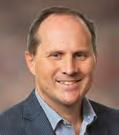

MEGAN LEESLEY, CPA, CVA
Megan Leesley, CPA, CVA, Salida, has been named a principal with Dark Horse CPAs.

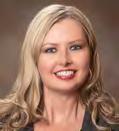



PAUL H. MUNTER, CPA
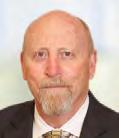
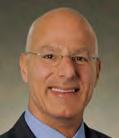
The U.S. Securities and Exchange Commission appointed Paul H. Munter, CPA, as its chief accountant. Munter had served as the SEC’s acting chief accountant since January 2021.
Future 2023 dates: May 3, June 7, July 5, Aug. 2, Sep. 6, Oct. 4, Nov. 1, Dec. 6. For more information, contact Lynn M. Mitton, CPA, MT, MPA, 303-499-7445, or email lmitton@tandemcpas.com.
CLASSIFIEDS
PRACTICES FOR SALE, PURCHASE, OR MERGER
Selling your practice in 2023 or looking to purchase a practice? Let’s talk!
If 2023 is your year to sell, please call us today to start the process. Selling your firm is complex. ACCOUNTING BIZ BROKERS can help simplify the process! We have been selling CPA firms for over 18 years, and we know your market. We have a large database of active buyers. We work with industry specific lenders eager to assist buyers with financing. Kathy Brents, CPA, CBI, at 866-260-2793 or Kathy@AccountingBizBrokers.com, or visit our website at www.AccountingBizBrokers.com.
DALBY, WENDLAND & CO., P.C.
Dalby,
March/April 2023 | www.cocpa.org 29
Wendland & Co., P.C., Grand Junction, promoted Nathan A. Garcia to audit senior and Kimberley Jones, PHR, to human resources supervisor. CEO Christopher L. West, CPA, has obtained the Personal Financial Specialist (PFS) credential from the AICPA.
Apr. 26 | May 17 | Jul. 26 | Aug. 30 Register now at cocpa.org/ForMe


Periodicals Postage Colorado Society of Certified Public Accountants 7887 E. Belleview Ave., Suite 200 Englewood, CO 80111-6076 800-859-8250 www.APS.net Kevin Overberg, CPA/PFS Practice Transition Consultant (720) 988-4334 Kevin@APS.net Delivering Results - One Practice At a time Scan QR Code To Get Started Experiencing March Madness? Make This Your FINAL SEASON!













 Audit Partner, BDO USA, LLP, Denver
Audit Partner, BDO USA, LLP, Denver








 BY KELLI DAVIS
BY KELLI DAVIS






















 BY KELLI DAVIS
BY KELLI DAVIS































